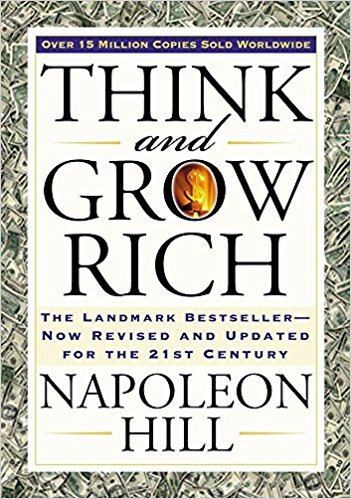
Think and Grow Rich
by Napoleon Hill
⏱ 13 minutes reading time
🎧 Audio version available
The Benefits of Solving Riddles
Solving riddles is not only a fun and engaging activity but also offers numerous benefits for your brain. When you tackle a riddle, your brain is forced to think critically, analyze information, and apply problem-solving skills. This mental workout can help improve your cognitive abilities, memory, and overall brain health.
Engaging with riddles also stimulates creative thinking and enhances your ability to think outside the box. Riddles often require you to make connections between seemingly unrelated pieces of information, fostering creativity and expanding your mental flexibility.
Moreover, solving riddles can be a great way to challenge yourself and improve your problem-solving skills. As you encounter more complex riddles, you’ll develop strategies for breaking down problems into manageable parts and applying logical reasoning to find solutions.
How Riddles Can Improve Critical Thinking Skills
Riddles are excellent tools for developing critical thinking skills. When faced with a riddle, you must carefully analyze the information given, identify patterns or hidden clues, and apply logical reasoning to arrive at the correct answer.
One of the key aspects of critical thinking that riddles help improve is deductive reasoning. Riddles often present a set of clues or information that needs to be pieced together to form a logical conclusion. By engaging with riddles regularly, you can enhance your ability to make logical deductions and arrive at accurate conclusions based on the available information.
Riddles also encourage lateral thinking, which is the ability to think creatively and approach problems from different angles. When solving a riddle, you may need to consider multiple possibilities, explore unconventional solutions, and think beyond the obvious.
Additionally, riddles promote problem-solving skills by challenging you to think critically and come up with creative solutions. The process of solving a riddle involves breaking down complex problems into smaller, more manageable parts and applying logical reasoning to find the solution.
The Psychology Behind Riddles and Brain Teasers
Riddles and brain teasers have fascinated humans for centuries, and their appeal goes beyond mere entertainment. The psychology behind riddles lies in the cognitive processes they engage and the mental challenges they present.
One of the reasons riddles are so engaging is because they tap into our innate desire to solve problems and find solutions. Humans have a natural inclination towards puzzles and challenges, and solving riddles satisfies this inherent need for problem-solving and intellectual stimulation.
Riddles also trigger a sense of curiosity and intrigue. The element of mystery and the promise of a solution entice us to engage with the riddle and invest our mental energy in finding the answer. This sense of curiosity keeps us engaged and motivated to solve the riddle, even when faced with difficulty.
Additionally, the element of surprise and the satisfaction that comes with solving a riddle releases dopamine in our brains. Dopamine is a neurotransmitter associated with pleasure and reward, and its release reinforces the positive feelings of accomplishment and satisfaction we experience when solving a challenging riddle.
Types of Riddles – Logic Puzzles, Lateral Thinking Riddles, and Math Riddles
Riddles come in various forms and categories, each with its unique set of challenges and problem-solving approaches. Let’s explore three common types of riddles:
Logic Puzzles
Logic puzzles are riddles that require you to apply deductive reasoning and logical thinking to arrive at the correct answer. These riddles often present a series of clues or statements that need to be analyzed and connected to solve the puzzle. Logic puzzles can involve various scenarios, such as crime scenes, mathematical problems, or spatial arrangements.
To solve a logic puzzle, you’ll need to carefully evaluate each clue, eliminate possibilities that contradict the given information, and make logical deductions to narrow down the options until you reach the correct solution.
Lateral Thinking Riddles
Lateral thinking riddles, also known as “thinking outside the box” riddles, require you to approach problems from unconventional angles and consider multiple possibilities. These riddles often involve wordplay, puns, or ambiguous language that can misdirect your thinking. To solve a lateral thinking riddle, you’ll need to challenge assumptions, explore different interpretations, and think creatively.
Lateral thinking riddles encourage you to break free from traditional thought patterns and explore alternative solutions that may not be immediately apparent. These riddles are designed to stretch your imagination and promote flexible thinking.
Math Riddles
Math riddles, as the name suggests, involve mathematical concepts and require you to apply numerical reasoning to find the solution. These riddles can cover a wide range of mathematical topics, including arithmetic, geometry, algebra, and logic.
To solve a math riddle, you’ll need to use your mathematical knowledge and problem-solving skills to analyze the given information and apply appropriate mathematical principles. Math riddles often require careful calculations, logical reasoning, and creative thinking to arrive at the correct answer.
Now that we’ve explored the different types of riddles, it’s time to put our problem-solving skills to the test with seven challenging riddles. Are you ready?
7 Challenging Riddles to Test Your Problem-Solving Abilities
1. The first riddle is a classic logic puzzle known as the “Einstein’s Riddle.” Albert Einstein is said to have created this riddle, claiming that only 2% of the population could solve it. Are you up for the challenge?
Can you crack the code and solve the riddle? Take your time and think through each clue. Remember, logical deductions are key to finding the correct answer. Good luck!
2. The second riddle is a lateral thinking puzzle that will test your ability to think outside the box. It involves a scenario where a man is found dead in a locked room. The room has no windows or doors, and the only items inside are a table and a mirror. How did the man die?
Put your lateral thinking skills to the test and see if you can come up with a creative solution to this mysterious riddle. Don’t be afraid to consider unconventional possibilities!
3. The third riddle is a math riddle that will challenge your numerical reasoning. It involves a sequence of numbers with a hidden pattern. Can you decipher the pattern and predict the next number in the sequence?
Get your math skills ready and try to spot the pattern in the sequence. Look for relationships between the numbers and think critically to find the missing piece of the puzzle.
4. The fourth riddle is a logic puzzle that will test your deductive reasoning. It involves a group of friends who each have a different favorite color, drink, and pet. Can you use the given clues to determine the unique combination for each friend?
Analyze each clue carefully and eliminate possibilities that contradict the information provided. With logical deductions, you’ll be able to solve this puzzle and match each friend with their favorite color, drink, and pet.
5. The fifth riddle is a lateral thinking challenge that will require you to think creatively. It involves a scenario where a man is found dead in the middle of a desert, surrounded by a pile of wood. How did the man die?
Put your creative thinking skills to the test and consider alternative explanations for the man’s death. Look beyond the obvious and explore different possibilities. Can you crack this riddle?
6. The sixth riddle is a math riddle that will test your problem-solving abilities. It involves a set of equations with missing numbers. Can you fill in the blanks and solve the equations?
Apply your mathematical knowledge and logical reasoning to solve this riddle. Think carefully about the relationships between the numbers and use deductive thinking to find the missing values.
7. The seventh riddle is a logic puzzle that will challenge your analytical skills. It involves a group of people who need to cross a river using a boat that can only carry two people at a time. Each person takes a different amount of time to cross the river, and there are specific conditions that must be followed. Can you figure out the optimal strategy to get everyone across?
Analyze the given conditions and think strategically to find the most efficient way to get everyone across the river. Consider the time constraints and plan your moves carefully. Can you solve this logic puzzle?
Related: Exploring the Depths of a Beautiful Mind: The Secrets to Unleashing Your Inner Genius
Strategies for Solving Riddles Effectively
Solving riddles can be challenging, but with the right approach, you can increase your chances of finding the correct solution. Here are some strategies to help you tackle riddles more effectively:
- Read the riddle carefully: Pay close attention to the wording of the riddle and make sure you understand all the information provided. Look for any clues or hints that may be hidden within the riddle.
- Break down the problem: If the riddle seems complex, break it down into smaller, more manageable parts. Consider each component separately and try to solve them individually before putting all the pieces together.
- Eliminate possibilities: Use the process of elimination to narrow down the possible solutions. Cross out options that are contradicted by the given information and focus on what remains.
- Think creatively: Don’t limit yourself to conventional thinking. Explore different possibilities, consider alternative interpretations, and think outside the box. Sometimes, the solution may be hiding in an unexpected place.
- Draw diagrams or make lists: If the riddle involves complex relationships or multiple variables, drawing diagrams or making lists can help visualize the problem and organize your thoughts.
- Collaborate with others: Solving riddles can be a fun group activity. Collaborating with others can bring fresh perspectives and different approaches to the problem. Don’t hesitate to seek help or discuss the riddle with friends or family.
By applying these strategies and approaching riddles with a clear and open mind, you’ll improve your problem-solving skills and increase your chances of finding the correct solution.
Resources for Finding More Riddles and Brain Teasers
If you’ve enjoyed solving the riddles in this article and want to continue challenging your brain, there are plenty of resources available to find more riddles and brain teasers. Here are a few options to consider:
Online riddle websites: There are numerous websites dedicated to riddles and brain teasers. Websites like Riddles.com, Braingle, and Riddles.fyi offer a wide variety of riddles for all skill levels. You can browse through different categories, difficulty levels, and even submit your own riddles.
Riddle books: Many books are available that are specifically designed to challenge your brain with riddles and puzzles. Look for books by renowned authors like Martin Gardner or titles such as “The Ultimate Book of Riddles” or “101 Riddles for Smart Kids.”
Mobile apps: There are several mobile apps available that provide riddles and brain teasers for on-the-go entertainment. Apps like “Riddle Me That!” and “Riddles Brain Teasers” offer a collection of riddles with varying difficulty levels.
Social media groups and forums: Joining online communities focused on riddles and brain teasers can be a great way to connect with fellow enthusiasts, share your own riddles, and discover new challenges.
Remember, the more you engage with riddles, the better you’ll become at solving them. So, keep exploring, challenging your brain, and pushing your mental limits!
What Is Snapreads?

With the Snapreads app, you get the key insights from the best nonfiction books in minutes, not hours or days. Our experts transform these books into quick, memorable, easy-to-understand insights you can read when you have the time or listen to them on the go.



